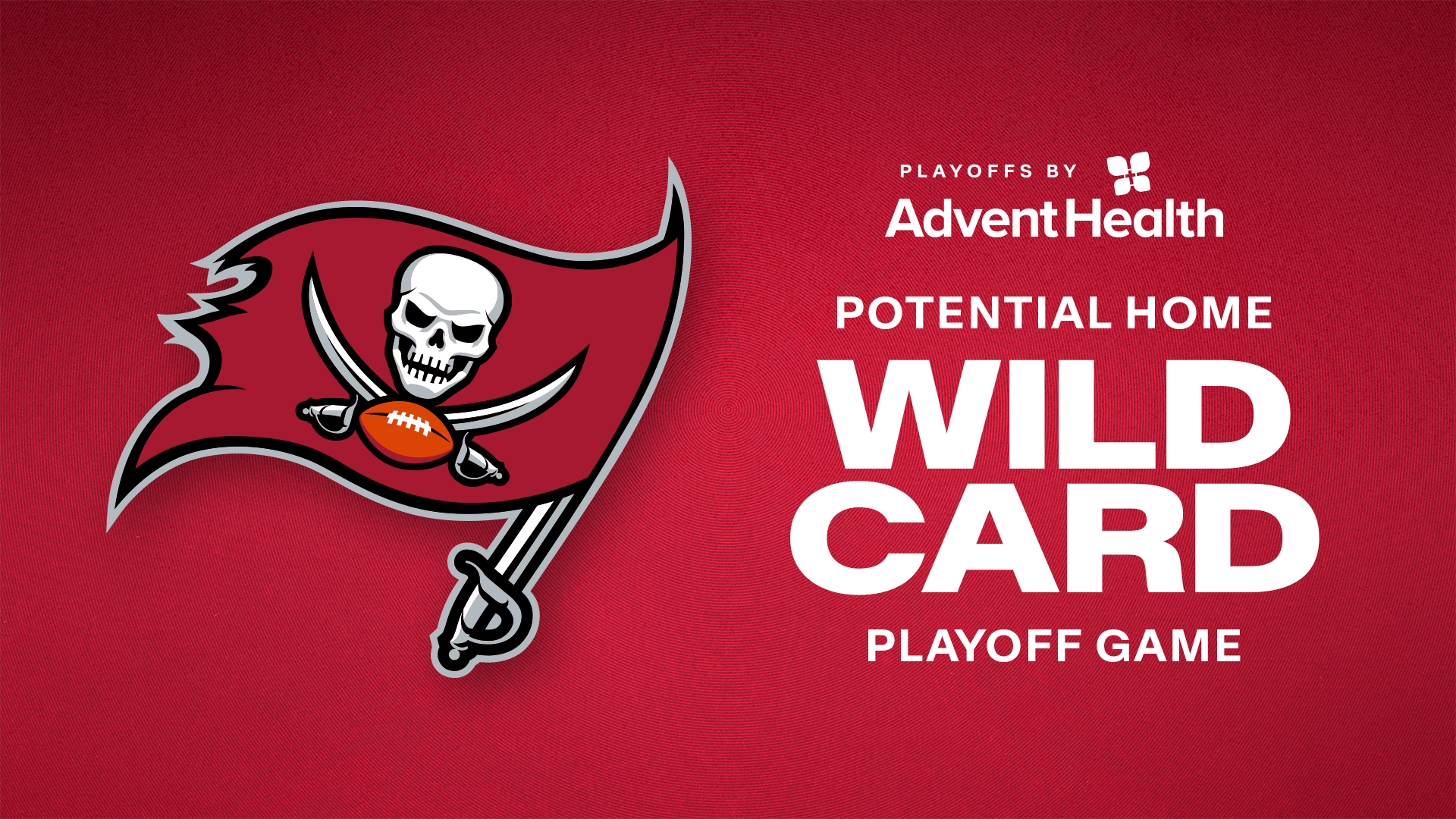Earlier this week, we made the Hall of Fame case for former Tampa Bay Buccaneers safety John Lynch, who is among the 15 finalists that will be debated by the Selection Committee on Saturday. Because Lynch excelled in so many ways, because his football excellence was more than the sum of his stats, it was a multi-layered argument.
For Dungy, who is a Hall finalist for the second time in as many years of eligibility, the case is much simpler. The job of an NFL head coach is to lead his team to victory, and nobody did that better than the former leader of the Buccaneers and Indianapolis Colts.
There is, of course, much more to Dungy's candidacy than his win-loss record, including the fact that his first head coaching job presented him with a seemingly impassible cliff that he scaled almost immediately. There are nuances to the argument that will take place behind the closed doors in Arizona on Saturday, most notably that Dungy was the first African-American head coach to win a Super Bowl. Those issues will be important, and will get to them in a moment, but the first line on his Hall of Fame petition should be about wins.
Among all the men in NFL history who served as head coaches for at least 100 games, Dungy ranks seventh in winning percentage. Here are those six men:
|
Coach |
W-L-T |
Win % |
|
103-32-7 |
.750 |
|
96-34-6 |
.738 |
|
116-47-5 |
.705 |
|
76-34-2 |
.691 |
|
328-156-6 |
.676 |
|
318-148-31 |
.671 |
|
139-69-0 |
.668 |
With the possible exception of Collier, you almost certainly recognize every name on that list. Here's a good reason why: Madden, Lombardi, Allen, Shula and Halas are already in the Hall of Fame. Collier, who coached the Cleveland Browns from 1963-70, just barely makes the 100-win cutoff.
Now here's that same list, but with an added column displaying the years that each man was an NFL head coach:
|
Coach |
Seasons |
W-L-T |
Win % |
|
1969-78 |
103-32-7 |
.750 |
|
1959-69 |
96-34-6 |
.738 |
|
1966-77 |
116-47-5 |
.705 |
|
1963-70 |
76-34-2 |
.691 |
|
1963-95 |
328-156-6 |
.676 |
|
1920-67 |
318-148-31 |
.671 |
|
1996-2008 |
139-69-0 |
.668 |
Of the six men above Dungy, only Shula coached in the '80s or '90s, and none was at the helm of a team in the new millennium. That's significant because the current NFL era, ushered in by the advent of true free agency in 1993, has been marked by much greater parity. This is most easily seen in the list of league champions, including Super Bowl winners since the 1966 season. Repeat champions were very common in the early history of the Super Bowl, with Green Bay, Miami, Pittsburgh and Pittsburgh again all doing it within the first 15 seasons. On Sunday, Seattle will attempt to be the league's first repeat champs since 2003-04. Eleven teams counted for the 27 Super Bowl titles before the salary cap era; 13 teams have won at least once in the 21 games since. Of all the men whose head coaching tenures began after 1993, only Bill Belichick and Mike McCarthy come close to Dungy's winning percentage, and Belichick is practically a lock for future enshrinement in Canton.
Compared to many of his predecessors, Dungy did have the advantage, in terms of mere counting numbers, of coaching only 16-game seasons. Of course, one could argue that longer seasons create more opportunities for things to go awry and winning records to suffer. The NFL played a 14-game schedule from 1961-77, and the AFL did the same from 1960-69. There was a cumulative total of 431 team-seasons played in that stretch, and 106 of those seasons produced a winning percentage of .700 or greater. The NFL has played a 16-game schedule since 1978 (excluding the strike-shortened 1982 and 1987 campaigns). There was a cumulative total of 1,049 team-seasons played from 1978 through this past season, and 139 of those seasons produced a winning percentage of .700 or better. So 24.6% of teams were able to produce a .700 winning percentage in the shorter season, a figure that has dropped to 13.3% with the longer seasons. Those same figures could also apply to the aforementioned parity claim.
The longer seasons produced more opportunities for victories, however, and Dungy's teams took advantage. His Buccaneer and Colt squads from 1996 to 2008 averaged 10.7 wins per campaign, the highest figure in NFL history among all head coaches with at least 100 games on the sideline.
There are two other former head coaches among this year's 15 finalists, Jimmy Johnson and Don Coryell. Johnson's teams in Dallas and Miami had a winning percentage of .556 and averaged 8.9 victories per season. Coryell's teams in St. Louis and San Diego had a winning percentage of .572 and averaged 7.9 victories per season. Obviously, Johnson's resume includes three Super Bowl championships to one for Dungy and none for Coryell, while Coryell is rightfully considered one of the NFL's most important offensive innovators. However, there are additional accomplishments on Dungy's resume to consider, too.
For one, Dungy found success in two wildly different situations in his two head coaching stints. When he took over the Buccaneers in 1996 he was inheriting a team coming off its 13th straight losing season, a franchise that had sunk into long-standing irrelevance under previous ownership. Dungy was the first head coaching hire by new Owner Malcolm Glazer, and it proved to be a stroke of genius. In just his second season in Tampa, Dungy led the Bucs to a 10-6 record and their first playoff berth in 15 years, followed by their first postseason win in 18 years. When his inaugural 1996 squad opened the season with five straight losses, Dungy famously guided it with a calming hand, preaching a need to stick to the plan. That same team won six of its last 11 and then opened the 1997 campaign with five straight wins. Instant relevance for a franchise starving for exactly that.
The Buccaneers made the playoffs in four of Dungy's six seasons at the helm, one more time than they had made it to the dance in their first 20 years. In 1999, despite having a rookie quarterback at the helm for the last seven games, advanced to the NFC Championship game and came within five minutes of upsetting the heavily favored Rams in St. Louis. That "Greatest Show on Turf" Rams team would then go on to win the Super Bowl. That '99 season gave the Buccaneers their first division title since 1981.
Along with his hand-picked partner, Defensive Coordinator Monte Kiffin, Dungy also built one of the most impressive defenses in NFL history. The Buccaneers immediately improved from 26th in the league's defensive rankings in 1995 to 11th in 1996, then ranked in the top 10 in each of Dungy's next five seasons, with three top-three finishes. Though he was no longer at the Bucs' helm in 2002, that defense was instrumental in taking Tampa Bay to its first Super Bowl championship.
Dungy and the Buccaneers parted ways after a 2001 playoff campaign, the team's third straight, and he took over the Colts just eight days later. The Colts had Peyton Manning under center but had moved on from Head Coach Jim Mora after a 6-10 finish in 2001. Dungy stepped in and guided Manning and company to a 10-6 mark in 2002, then a run of six more years with at least 12 victories. The Colts made the playoffs in each of Dungy's seven years in Indy, captured five division titles and won it all at the end of the 2006 season.
Check out photos of Hall of Fame finalist and former Tampa Bay Buccaneers Head Coach Tony Dungy.

























That Super Bowl XLI pitted Dungy's Colts against a Chicago Bears team led by current Buccaneer Head Coach (and former assistant in Tampa under Dungy) Lovie Smith. Together, Dungy and Smith were the first two African-American head coaches to guide their teams to the Super Bowl, and Dungy was the first with a title after his Colts won the game, 29-17.
Dungy retired from his post with the Colts after the 2008 season. Spanning his Buccaneer and Colt tenures, Dungy guided his team to the playoffs for 10 straight years from 1999-2008. No other NFL head coach had ever done that. His four playoff seasons with the Buccaneers are the most for any head coach in franchise history, and his 56.3% winning percentage is also a team record. After that initial rebuilding season with the Buccaneers in '96, Dungy's teams made the playoffs in 11 of the next 12 seasons, missing only in '98 when Tampa Bay finished 8-8 and was eliminated late on the final day of the regular season.
Ultimately, it will be the Selection Committee that will debate whether Dungy's status as the first African-American head coach and any perceived social impact he had in that regard impacts his candidacy. That same crew might also consider the deep level of respect Dungy engendered among his peers for his demeanor and his character, and if so will surely give him a significant boost.
|
15 MODERN-ERA FINALISTS
|
What is not debatable is the impact Dungy had on the NFL, which was the crux of our argument earlier this week regarding Lynch.
Using concepts he had learned while playing for the Pittsburgh Steelers and honed as the defensive coordinator in Minnesota, Dungy took the Cover Two defense and perfected it, to the point that it became more commonly known as the Tampa Two. That defense would soon find traction in many posts around the NFL.
In addition, Dungy consistently put together coaching staffs that brought new talent and difference-makers in the league. Future NFL head coaches Lovie Smith, Herm Edwards, Rod Marinelli, Mike Tomlin, Jim Caldwell and Leslie Frazier all worked on Dungy staffs, with all but Edwards and Frazier actually brought into the NFL by Dungy. It's difficult to exactly quantify but also impossible to ignore the manner in which Dungy's influence has spread throughout the league since he first arrived in Tampa in 1996.
That '96 arrival changed the course of the franchise and is the reason that Dungy is one of the most important and impactful figures in Buccaneers history. His subsequent run of unbroken success – including a championship title – multiplied that impact and made his overall NFL coaching resume one that has rarely been exceeded in league history.
That resume should land Dungy in Canton; hopefully this year's Selection Committee will agree and make sure that Dungy's wait to join the Hall of Fame will be a short one.
























